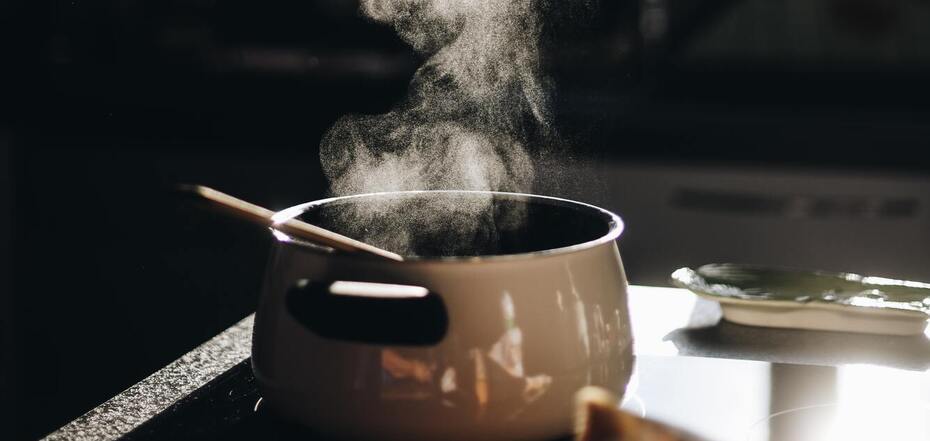LS Food
8 food myths that everyone believes in for some reason
In cooking, there are moments that hardly anyone can explain, but which everyone believes in for some reason.
The FoodOboz editorial team tells you what information is false and why you shouldn't believe it.
Myth number one
If you add salt, water will boil faster. No, no, and no more.
This is one of the most common myths that has nothing to do with reality. Salt water does indeed boil faster than fresh water, but it is only one degree Celsius ahead of fresh water. This is confirmed by science, but in practice, you are unlikely to feel this difference – unless the liquid consists of 20 percent or more salt.
Myth two
Boiled pasta must be rinsed with cold water. Yes and no.
Rinsing the pasta with cold water is only necessary if you need to abruptly stop the cooking process and achieve an al dente state, in which the dough remains slightly undercooked. In general, you don't need to rinse the pasta: the starch contained in it helps to "bind" all the ingredients and gives the sauce a viscous consistency.
Myth number three
Chicken skin is oily and very unhealthy. Fatty – yes, harmful – no.
Despite the fact that chicken skin does contain a lot of fat, it does not harm the body. The thing is that these are unsaturated fats, which, among other things, are also found in olive oil and almonds. In addition, research by the Harvard School of Public Health has proven that the fat in chicken skin helps to lower blood cholesterol and normalize blood pressure.
Myth number four
Milk makes an omelet fluffier. Unfortunately, no.
Milk evaporates quickly, and the protein it contains coagulates into a foamy mass. Eggs take much longer to cook on their own, and milk has no influence on this process. The secret to a fluffy omelet is to cook eggs at a very low temperature. The protein will rise and acquire the desired texture without any other ingredients. You just need to be patient, keep the lid closed, and remove the pan from the heat a little earlier than necessary - the dish will "reach" the desired condition.
Myth number five
All alcohol evaporates during cooking. Not quite true.
The U.S. Department of Agriculture recently published the results of a study that confirmed the fact that more than 40% of alcohol is retained in dishes with alcohol. A participant in the experiment stewed meat in a wine sauce for 2.5 hours, and it turned out that about 95% of the alcohol did not evaporate but was absorbed into the product. Another dish, a sauce based on the French liqueur Grand Marnier, retained about 85% of the original amount of alcohol.
Myth six
Vegetables become less healthy after heat treatment. This is not true.
Studies show that fat-soluble vitamins A, D, E, and K tolerate heat treatment well, and carotenoids even increase in quantity when cooked in boiling water. Vitamins B and C, on the other hand, are water-soluble, meaning they move into the liquid in which they are cooked. This means that vegetable broth and soup are no less healthy than fresh vegetables.
Myth number seven
The pink juice oozing from the steak is blood. It is not.
Many people refuse to eat medium-rare steaks because they don't want to eat blood or are afraid of getting poisoned. Meanwhile, the pink liquid that flows out of the meat is nothing more than myoglobin, a pigmented protein in muscle tissue. Its main function is the same as that of hemoglobin – to create an oxygen reserve. You won't see myoglobin in well-done steaks – it darkens during prolonged heat treatment.
Myth number eight
Microwaves "kill" all useful trace elements. No, they don't.
The principle of microwave action is to evaporate the liquid molecules inside the product. Therefore, even if most of the vitamins and minerals remain unchanged even with longer heat exposure, a short stay in the microwave oven will not destroy them.



























